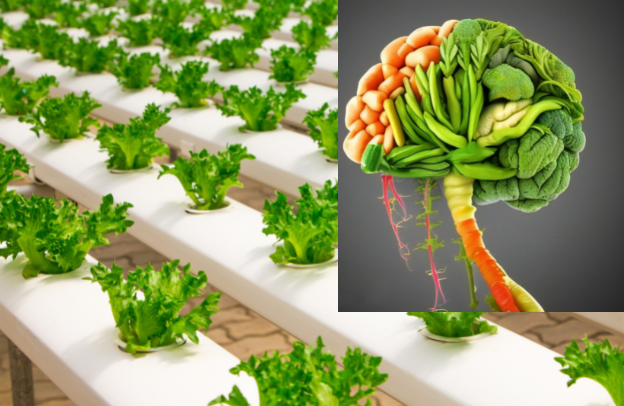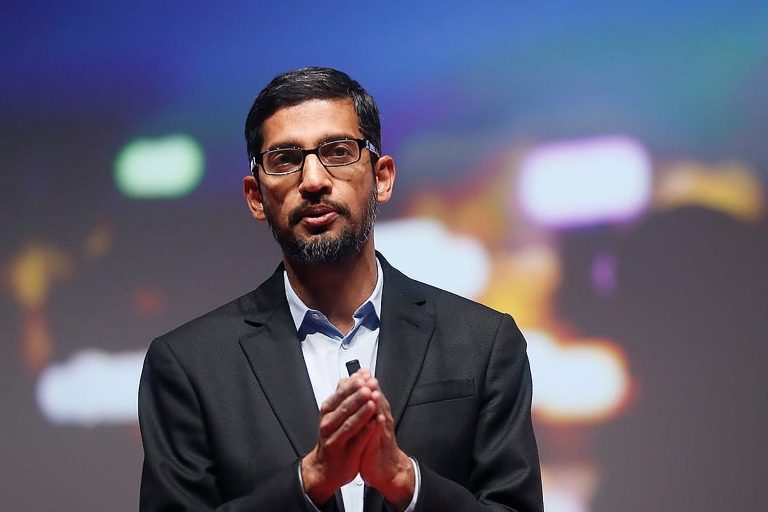Brain Re-Engineering Concept and Reimagination

The potential of the human brain is infinite, and as we continue to learn more about its complexities, we discover new ways to harness its power. One such concept is Brain Re-Engineering, which involves the intentional rewiring of neural pathways to enhance our cognitive abilities. Welcome to Brain Re-Engineering Concept and Reimagination: A Veritable Educational Strategy for Entrepreneurship Development, Technology Transfer and Youth Engagement in Agriculture.
Get a FREE GUIDE for your small and medium-scale farming business
When applied to education, this process can lead to a reimagination of traditional learning methods and a more effective approach to entrepreneurship development, technology transfer, and youth engagement in agriculture. By unlocking the full potential of our brains, we can create a brighter future for ourselves and for generations to come.
The “Brain Re-Engineering Concept and Reimagination: A Veritable Educational Strategy for Entrepreneurship Development, Technology Transfer and Youth Engagement in Agriculture” is designed by Dr. Ikechi Agbugba.
Dr. Ikechi Agbugba is a United Nations Consultant under the International Organization for Migration (IOM) Connecting Diaspora for Development Project focused on the “Train The Trainers Program” spearheaded by the Hague Office in the Netherlands.
Over the years, we have conducted several interviews with him where he talked about the different facets of agriculture and agribusinesses for small and medium-scale farmers in Africa. Read the synopsis of the project below.
SYNOPSIS
As the advocator and champion of the Brain Re-Engineering Concept and Reimagination, I can boldly present myself as a core African with great values while growing up at the University of Nigeria Campus.
My mother who always sent me to our home garden and micro poultry farm to manage the crops (cassava, maize, okra, fluted pumpkin or ugu, waterleaf, and bitter leaf, among other horticulture crops) influenced my interest and decision In charting a course and career in the economics of agriculture.
Taking a trip down memory lane, I can boldly say that I was the only student in my graduating set that applied for the program. In those days, I could tell that my sojourn in this space sounded uncanny or weird and I still have a vivid memory about how youngsters & youths of our countries nurse a negative feeling or disinterested attitude about pursuing a career in that space probably cos of the deep-seated cultural issues.
They still believe that venturing into this space will make them poor & unfulfilled by the end of the day. Interestingly, the hostile call of Covid-19, and Russia-Ukraine War, and other disasters which are looming is a double-edged sword with agriculture/agribusinesses having either a direct or indirect effect on food supply chains, as well as an impact on food value chains.
This truly underscores the need for a veritable educational strategy that can re-engineer the brains of youngsters and the youth to reimagine agriculture, have a behavioral change, and become more entrepreneurial with agribusiness in the new economy and the advent of technology and the era of 4IR when science and technology have already changed that narrative.
The concept enlightens the youth that virtually all professional areas can operate within the domains of the world of agriculture. This is timely as the demand for food, as well as demand from industries on agricultural commodities (either from crops, livestock, forestry, or fisheries) keeps soaring. Food preferences keep evolving by the day.
Food in itself being one of life’s priority needs must be eaten & how many persons are nutritionally secure today? In these times, many medical doctors, lawyers, engineers, pharmacists, and other professionals are acquiring lands to invest in this sector.
Can I present the Pillars of the Brain Re-Engineering Concept and Reimagination as hinging on awareness creation or education for the younger generation in developed and developing societies?
As a matter of fact, these pillars are relatable and can be described as more of a paradigm shift that entails the building of ideas & knowledge levels to change the negative or wrong ideologies and mindset and injecting the brain and mind with great realities on creativity and innovation while employing game-changing technological solutions with some entrepreneurial skill to drive a sustainable change.
About The Author
Dr. Ikechi Agbugba is a United Nations Consultant under the International Organization for Migration (IOM) Connecting Diaspora for Development Project focused on train-the-trainers program spearheaded by the Hague Office in the Netherlands.
He successfully delivered his first assignment with IOM of the UN as Diaspora Expert Leader at the Food Crop Production Technology Transfer Station in Ubiaja, Nigeria. He is currently on his second assignment with the IOM of the UN as Diaspora Expert Leader at the National Horticultural Research Institute (NIHORT), Ibadan.
He specialized in marketing and agribusiness management with a specific interest in entrepreneurship development, the economics of agriculture, food security, and related areas. He has vast work experience as Researcher and Development Officer with the Reform Corporation International (RCI), London, UK; Senior Lecturer at Rivers State University; Visiting Professor at Rome Business School; Adjunct Professor at Cavalla International University (CIU), among others.
Since 2003, he has been carrying out research on economics, agribusiness, and the marketing of food and agricultural commodities. He earned Ph.D. in Marketing of Agricultural Products and gained Postdoctoral Research Experience on Smallholder Development which was a collaborative study between the University of Fort Hare, South Africa, and the Agricultural Research Council (ARC).
He is also an external examiner with the Development Studies Department University of Fort Hare and has been examining Ph.D. students since 2018. Currently, he features as a senior academic/researcher playing mentoring roles to university students, African youths, and teenagers.
Interestingly, he recently received an award as Global Mentor of Change from the Global Council for the Promotion of International Trade. He also engages with international networking volunteer organizations across Africa and outside, as either senior advisor or director.
As an active advocate member of the European Technology Chamber (EUTECH), he participates in different workstreams as either expert, consultant, or speaker. Recently, he was nominated as Board Member of the Food, Farming and Fisheries Alliance Committee by EUTECH focusing on possible and easy solutions how to deploy business ideas, as well as relevant technology to targeted African communities, developing interregional technology cooperation between Europe and Africa.
According to Dr. Agbugba, “moves to industrialize the agriculture sector must be vastly encouraged especially in this era of the advent of technology and the fourth industrial revolution (4IR).” To mention a few, Prof Dr. Agbugba is a roving ambassador with the State of the African Diaspora (SOAD).
He is also an Advisory Board Member with the African Continental Chamber for Commerce and Industry (ACCCI); Director, Research & Development/International Coordinator for Africa Agriculture Agenda (AAA); Senior Advisor, African Youth Diaspora Organization (AYDO); Senior Adviser to Chief Executive, Maxwell Investment Group (MIG), an international Profit for Purpose investment firm, operator and trader.
Senior Advisor, AgriEn (an agribusiness and agri energy initiative focused on accelerating the development and delivery of innovative and sustainable interventions in food security, among other initiatives.
Also, Prof Dr Ikechi is the Technical Adviser to NutriCare, Malawi (an initiative developing strong farmers’ links and networks with the agriculture sector in specific regions thereby identifying farmer/farming needs, as well as building networks, partnerships and relevant opportunities in line with the vision of actualizing food and nutrition secure communities through empowering women to increase the availability of affordable nutritious foods.
He has also gained experience as a Professor of Management at Cavalla International University of America. It is important to note that in building the technological capacity of African smallholder farmers under the CIU platform, Dr. Beatrice Bischof and Dr. Agbugba developed a PETS Foreign Policy Ecosystem for African entrepreneurs.
He is a selected academia/researcher stakeholder in the Feed-the-Future initiative of the USAID Global Food Security Strategy Whole-System Workshop and has led plenary sessions on Food Security and Agribusiness, especially at the International Food and Agribusiness Management Association (IFAMA) World Congress which held at St Paul Minneapolis, Minnesota, USA.
Moreover, he is the recipient of the excellence award ‘Agro-Economist of the Year’ at the 2017 Conference of the Pan African Agricultural Journalists (PAAJ). He also received the Global Emerging Leaders’ Award 2022 from the Global Council for Promotion of International Trade (GCPIT).
See the links for more:
Conclusion Brain Re-Engineering Concept and Reimagination
In conclusion, Brain Re-Engineering is a powerful concept that has the potential to revolutionize the way we approach education and development.
By utilizing this approach, we can enhance our cognitive abilities and unlock our full potential, leading to more effective entrepreneurship development, technology transfer, and youth engagement in agriculture.
As we continue to push the boundaries of what is possible, it is clear that the human brain remains one of the most powerful tools at our disposal.
By investing in Brain Re-Engineering and embracing a culture of lifelong learning, we can create a brighter future for ourselves and future generations.
Are you a small or medium-scale farmer? Then get our FREE GUIDE for your farming business.




